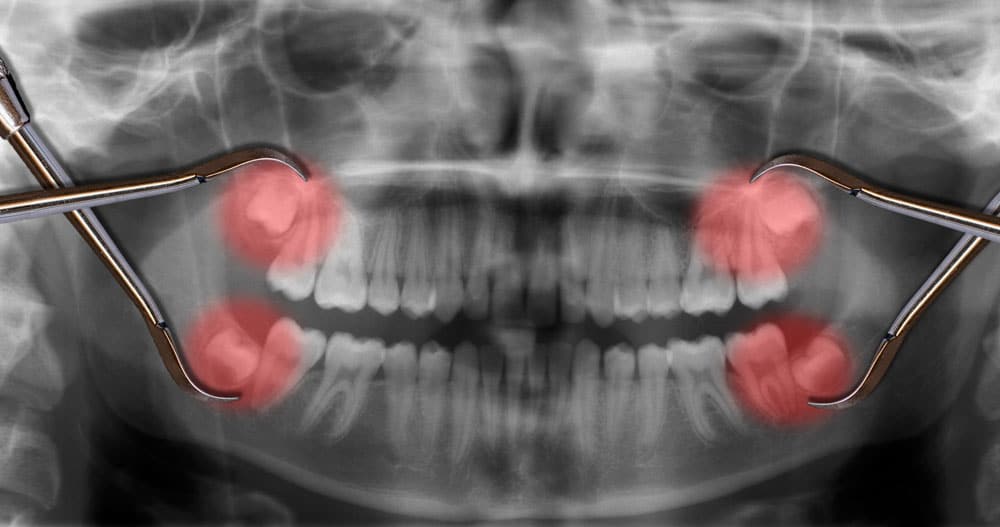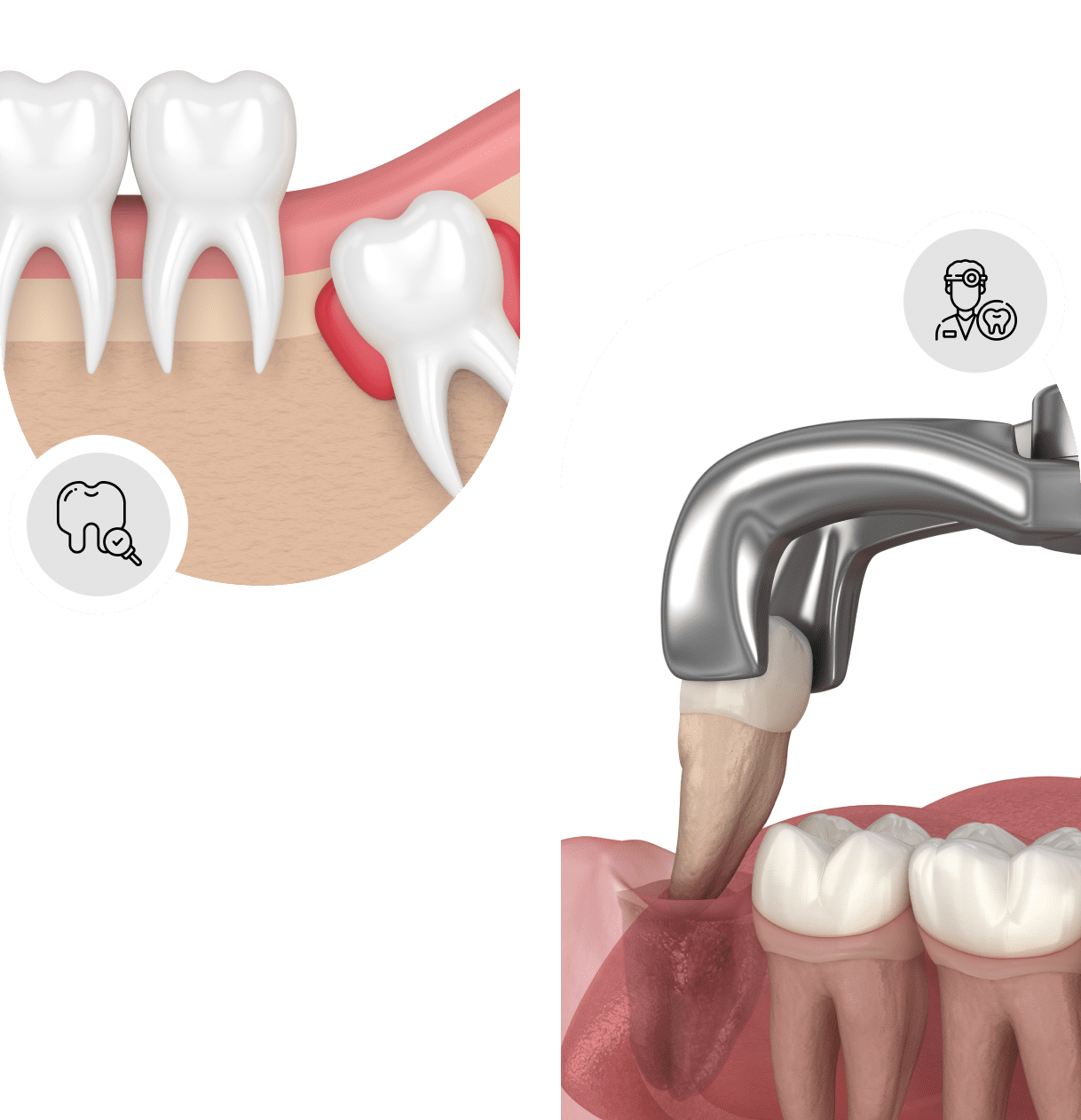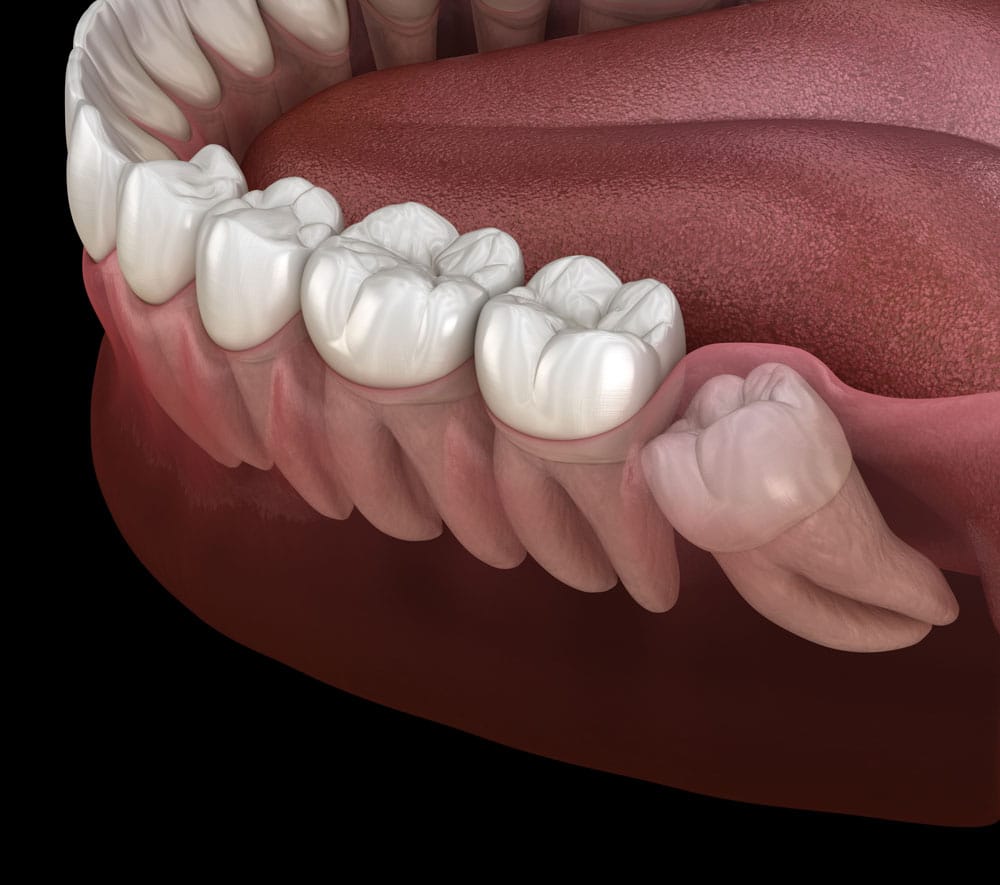

Wisdom teeth are so named because they come in anytime between the ages of 17 and 29. Most people get them before they turn 21 years old but they don't all come in at once. You may get one or two and then the other two several years later. Not everyone gets wisdom teeth but most do.
In ancient times, wisdom teeth coming in was a sign that you were an adult and those who got them were allowed adult participation in their tribe or clan.
Wisdom teeth are wide molars that start erupting in the furthest part of the back of the mouth behind all the other teeth. There are a total of four with one on each side on the top and bottom rows.

It's speculated why wisdom teeth today present problems compared to centuries ago, but the fact is that the worst dental problems come from wisdom teeth. They can grow impacted into the jaw, crowd out other teeth, or become easily decayed. Most people don't have big enough jaws or mouths for them to grow straight like other teeth so dentists recommend pulling them in most cases.


30 minute Dental Cleaning & Polish,
Dental Check-Up and X-Ray